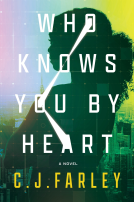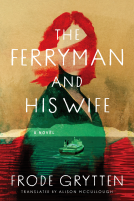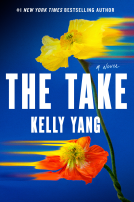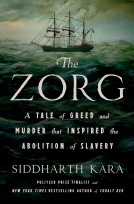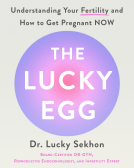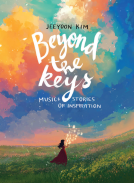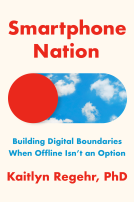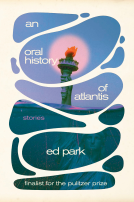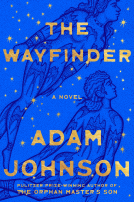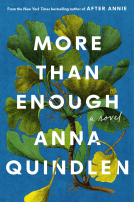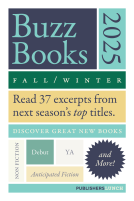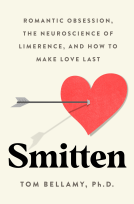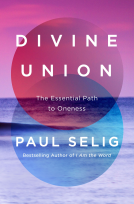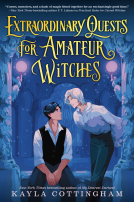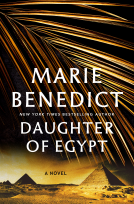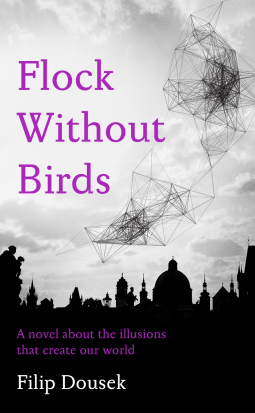
Flock Without Birds
by Filip Dousek
This title was previously available on NetGalley and is now archived.
Send NetGalley books directly to your Kindle or Kindle app
1
To read on a Kindle or Kindle app, please add kindle@netgalley.com as an approved email address to receive files in your Amazon account. Click here for step-by-step instructions.
2
Also find your Kindle email address within your Amazon account, and enter it here.
Pub Date May 24 2022 | Archive Date Jun 30 2022
Talking about this book? Use #flockwithoutbirds #NetGalley. More hashtag tips!
Description
A genre-bending, mind-altering novel about the illusions that make up our world.
Flock Without Birds comes in two volumes, with neither one first or second - it's up to the reader to start with the Story or the Book.
In the Story, an aging philosopher tells the tale of the Book - a tale of love that spans centuries, continents, and precious texts. Adam, who will one day write the Book, is a young PhD student torn between love and his obsession - coding an algorithm to sift the world's data and find God, dead or alive. But a series of mysterious paintings lead him on a winding journey from Cambridge through a Faustian bargain to the edge of reason. Meanwhile in his library, Toito the philosopher calls into question everything there is to believe about Adam - and our world.
The Book - Adam's journal from a foreign prison - promises to cure the divisions that plague the world. Their root cause isn't politics, capitalism, race, religion, or media. A deeper layer, obvious and invisible, forms what we think, believe, and do. It shapes our wars and our relationships. Unless we confront these illusions, we will remain slaves to the obvious and lose the greatest freedom - the freedom to create a different world. The code - and the key - is within the human mind. But will Adam himself manage such a feat? Can he escape the prisons of the body and of the mind, and regain his love?
After reading both volumes, Adam's story - and our society - will look very different in the end. Two tales, separate and intertwined, ask the question: where does the whole end and the part begin? What is a flock without birds?
Advance Praise
"One of the most pleasant literary surprises." –Elle
"Philosophy blends with adventure, technology with poetry and mysticism with logic – all in the tension of the black and white books, that are everything but black-and-white.“ Tomas Sedlacek
“Unique in many ways...without a match among contemporary Czech titles.” –Martinus
“Absorbing, riveting and thoroughly fascinating. Full of philosophy, logic, poetry, mathematics, religion, spirituality and mysticism. A life’s work.” –Jan P. Martinek
"An impressive tour de force combining a philosophical novel with a postmodern form." –Literary review
"A remarkable feat in the style of Western bestsellers." –Tvar
"A brilliant opening number on the literary stage.“ James Mulholland
“We are entering a brave new world of convergence between technology and homo sapiens. In Flock without Birds Filip shows us he is the modern Renaissance Man, the polymath that can guide us on this exciting journey. He expertly links varied and critical fields of human endeavour to an absorbing human tale. A triumph. Read it.” –John Raddall
Available Editions
| EDITION | Hardcover |
| ISBN | 9788090785106 |
| PRICE | $23.95 (USD) |
Links
Featured Reviews
 Paul V, Reviewer
Paul V, Reviewer
This won't be for everyone. It has an interesting approach, and one I haven't come across. This one is a bit of a "thinker" and philosophical. Thus, it is likely to stick with readers for a while.
I really appreciate the free ARC for review!!
If you want to understand a book, does that mean you should to read it?
The prologue triggered me immediately. It also made me wish that I could follow more than one path and read both the book and the story first, mix them up or maybe read them at the same time. In the end, I started with the story because that was the first part in the ebook.
In the story, Adam tests his understanding of the world through his relationships with other people, such as his girlfriend Nina whose artistic project turns out te be rather interesting. He searches for universal order with his programming of the Faustomat and goes in search of the Cambridge archives with alumni data to use as human input for calculating karma. But what is he really looking for with this project?
Who is telling the story?
The storyteller is a competent narrator, but who is he? Where does the author end and Adam begin? There are chapters nestled in between that don’t “fit,” mixing another voice with one that is Adam’s. Time and story lines are fluid and so is the boundary between what is inside the story and what is outside it. Flock Without Birds combines many of my interests as it touches on topics such as technology, philosophy, myths, religion, social intelligence, art and science.
“Intuitively, their disparate time and space fractals had to merge in order to thrust the self into a new dimension.”
The possibility of alternate realities weighs heavily on Adam as he considers how hundreds of surrogate infidel Adams crowd the only faithful one. His dilemma makes you think about the things you do and the things you give up. The idea is that even if you do only half of the calculated sum totals of your life, you might avoid boredom. Although you lose all other paths when you choose, the old portraits that fascinate Adam for a long time show that with time come new possibilities.
The many lives not lived remain as unexplored as the many possible stories in Mallarmé’s book Le Livre. It shows that when what you are trying to accomplish has a gigantic scope, it can prevent you from accomplishing smaller parts and you might never deliver anything at all. Even myths are built from smaller tropes. It’s good to dream big and have the audacity to go for the absolute. The elderly version of you is not better than you: he or she has only experienced what you decide to do.
Infinite possibilities
“Perhaps the enigma of the world hides not in what escapes me, but in what I see.”
After the story comes the book, with some deliberate self-reflection and more philosophy. I won’t say more as not to ruin your chance to find out how they go together. I want to reread Flock Without Birds to catch what I missed on the first read, so I ordered the hardcover edition to do just that; that’s how intrigued I was by this book. It is a book full of terminal paradoxes. How would you explain Adam?
I enjoyed trying to see the world as Adam sees it. The story is well-crafted. The author introduces many concepts and illustrates them in different ways. I like the narrative tone, the scope of the topics, and the choices and challenges the author voices. Flock Without Birds is focused on the future.
Recommendation
Filip Dousek wrote a fascinating book; one that is thoroughly unique. It’s been a while since I read a book that made me pause and consider what’s being said this much. So far my favorite read of this year. Read this if you crave something challenging that can serve as inspiration for your future.
One last takeaway (not per se groundbreaking): if you take a step away from pursuing your individual dreams and convictions, you may discover that you are right in the middle of where you aspired to be unintentionally.
 Reviewer 537835
Reviewer 537835
This is a highly inventive and audacious novel about a data scientist trying to use computers to define the existence (or lack of existence) of God. And love. And other totally ineffable things. It contains brilliant discourses on philosophy. I'll put a few quotes at the bottom here. The writing is brilliant, to say the least. I loved the informality of the language, and the flow of it.
However, I am not going to finish the book right now, after reaching 25%. The reason is that it feels like a book for millennials (which I am not). The main character seems like he's on the spectrum, and his relationships are problematic. He's quite cynical. Right now, I am in an emotional place where I want to find meaning and purpose, and I don't want to spend time in the company of Adam, the main character. This is despite the fact that I really wanted to see what the author was going to do with such a fascinating premise for a book. Perhaps I'm just not the right target reader at this point in my life. I think millennials, on the other hand, would totally "get" the characters and feel quite at home with the tone.
"As soon as he wrote it [Nietsche writing that God is dead], something rather curious happened: nothing at all. Lightning did not strike him down. Nobody burned him at a stake. And no one disproved his claim... It quickly became irrelevant whether God had really died. The mere possibility became too important; it became the reality of possibility. And God sank further down: from a hypothesis, he became a risk. The rating of the church and its notes, redeemable the day after death, suddenly dropped from AAA to B+, by the analysts' consensus. And people don't base their savings on such instruments, nor empires their fates. Such currency is only fit for speculation."
"Nietsche clearly described the domino effect After the death of God, the entire Western moral and philosophical structure would collapse. And with it, the balance between nations, classes, and people; and with that, the power held by the church and monarchs. What follows is a clueless place... The 20th and 21st centuries: a clueless place. Experience offers no advice. The past is cut off from the future. The mind is flooded by an infinity of equal, undecidable possibilities. People even have a special word for this tortured place: freedom."
"I watch the most destructive force my century has seen: the loss of meaning and direction."
 Reviewer 666609
Reviewer 666609
This is a book that blended a story with insights into philosophy, science, technology and art relating to how societies evolve and how people relate to each other. It made me think about how the world has changed historically as well as in my own life time.
Writing a novel about Big Ideas without being boring or pedantic is really hard. Filip Dousek has managed to pull it off. Like Zen and the Art of Motorcycle Maintenance, or Sophie's World, Flock Without Birds focuses on the story of its central character in order to explore how we relate to the world around us, managing to weave the philosophy into the narrative rather than the other way around. The main character is a data scientist attempting to write his PhD on a unified computer theory that will explain and predict anything. His two main antagonists are his romantic girlfriend and a professor of cultural studies who is a shaman and a tarot reader. The narrator moves through the complications of love and challenges to his rational authority, realizing in the end that relationships are truth rather than a static logical order. Highly recommended for philosophy and theology nerds who need to get into their heads in order to get out of their heads.
 David L, Reviewer
David L, Reviewer
This is a compelling book. It was a very interesting examination of the meaning of existence, however at times meandered too much into philosophical ponderings, and made it hard to get through. I nonetheless enjoyed it.
 Skip Q, Reviewer
Skip Q, Reviewer
This was certainly a book with lots to think about. I started with The Story but could not continue reading that part since I felt the writing was disjointed and hard to read. Then I read The Book which I thoroughly enjoyed. I learned a lot from his comparative analyses, so I may try a second attempt at The Story. The author certainly has a lot of knowledge on many subjects. Because of his writing style in The Story I regret that I can only give it a 3 star rating, This work will be different from most books you will ever read but you may just come away with a very different outlook on life. I am thankful I have had the opportunity to get to know the author’s mind and will now attempt a second reading of The Story.
Readers who liked this book also liked:
Publishers Lunch
General Fiction (Adult), Nonfiction (Adult), Teens & YA

